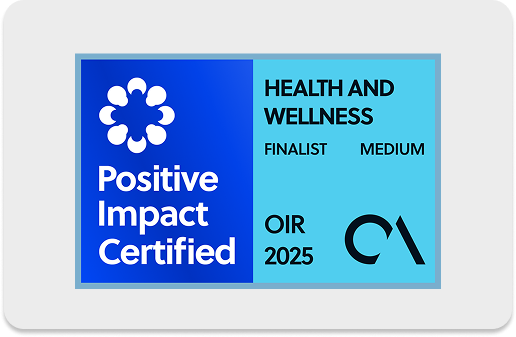Delivering exceptional service in a call center environment isn’t just about answering the phone and resolving issues—it’s about creating meaningful connections and ensuring customers feel valued.
If you’re wondering how to improve call center customer service, these 24 expert tips will elevate your operations while enhancing customer satisfaction.
1. Standard Operating Procedures (SOPs) And Guided Workflows
Well-documented SOPs ensure consistency across the board. Guided workflows also help agents navigate complex queries easily, ensuring customers get the right solutions without the unnecessary back-and-forth.
For example, creating a step-by-step guide for handling complaints allows agents to navigate difficult conversations efficiently while maintaining professionalism.
2. Centralized And Accurate Database
When agents have access to a single, updated source of customer data, they can resolve issues faster. This eliminates redundancies and ensures every interaction feels personal and informed.
Imagine a customer calling about a prior issue, and the agent can immediately retrieve their history. This seamless approach demonstrates competence and reduces frustration.
3. Skill-Based Routing
Skill-based routing directs customers to agents with the expertise to solve their problems. For instance, technical queries can be assigned to specialists, ensuring faster and more accurate resolutions. By matching the right agent to the right issue, you can significantly improve the customer experience.
4. Leverage Call Center Analytics
Analytics provide deep insights into performance metrics like average handle time and first-call resolution rates. For example, data trends might reveal long hold times, prompting action to optimize staffing levels. You can pinpoint areas needing improvement and address them proactively by identifying trends.
5. Comprehensive Agent Training
Investing in well-structured training programs helps agents build confidence and effectiveness. By conducting regular sessions focused on soft skills, product knowledge, and call-handling techniques, your team can stay well-prepared to assist customers effectively.
This continuous training supports agents in gaining the knowledge required to address a diverse array of customer concerns. As their confidence grows, it leads to more seamless interactions and increased customer satisfaction.
6. Quality Assurance Programs
Taking the time to review calls and share helpful feedback is a great way to support your agents’ growth. To improve conversations, pay attention to things like tone, empathy, and problem-solving skills. For example, pointing out tone adjustments can improve how customers perceive empathy during interactions.
7. Self-Service Options
Not all customers want to speak to an agent. Intuitive self-service platforms like FAQs, chatbots, and knowledge bases empower customers to resolve simple issues independently, saving time for everyone involved.
8. Real-Time Call Monitoring
Supervisors can listen in on live calls to offer immediate guidance or assistance. This approach is invaluable for training new agents or managing escalated situations.
By implementing real-time monitoring, businesses can address how to improve customer service in a call center while ensuring consistent quality across interactions.
9. Omni-Channel Support
Customers seek support through various channels, such as phone, email, chat, and social media. Providing seamless transitions between these channels ensures customers don’t need to repeat themselves, enhancing satisfaction.
This approach is key when exploring how to improve the customer experience in a call center and deliver effortless service.
10. Focus On First Call Resolution
One of the most effective strategies to improve customer service in a call center is prioritizing first-call resolution.
Addressing customer issues during the initial interaction saves time for both agents and customers while increasing satisfaction. Thorough training and accessible resources can achieve this goal.
11. Positive Workplace Culture
A supportive workplace environment leads to happier agents and better customer interactions. Recognize achievements, provide incentives, and promote collaboration to keep morale high. Building this culture ensures agents are motivated and engaged.
12. Personalization
Personalized service makes customers feel valued. Agents can use available data to reference previous interactions or address customers by name. Small touches like these create a positive and lasting impression.
13. Customer Feedback Surveys
Gathering feedback shows customers that their opinions matter. Use surveys to pinpoint areas for improvement and implement changes accordingly. Regular feedback loops can drive continuous improvement.
14. Predictive Analytics
Predictive analytics can anticipate recurring issues and offer preemptive solutions. For example, alerting customers about scheduled outages before they call shows foresight. This builds trust and enhances the customer relationship.
15. Efficient Internal Communication
Smooth internal communication helps agents collaborate effectively with other teams. This reduces delays and ensures faster problem-solving. A well-connected team delivers a seamless experience to customers.
16. Enhanced Interactive Voice Response Systems
An optimized IVR system ensures customers are routed quickly to the right department. Clear and concise menu options reduce frustration. A user-friendly IVR improves the overall call experience.
17. Flexible Call Scripts
Rigid scripts can make interactions feel impersonal. Allow agents to use scripts as flexible guides for natural conversations. This balance maintains professionalism while keeping the interaction engaging.
18. Gamification
Introduce gamified incentives like leaderboards, badges, or rewards to boost agent performance. This adds fun to the workplace while driving better results. Friendly competitions can lead to a more productive team.
19. Soft Skills Training
Empathy, patience, and active listening are essential for an outstanding service. Train agents to handle difficult customers with understanding and professionalism. Soft skills can turn negative interactions into positive outcomes.
20. Upgrade Technology Regularly
Outdated systems slow down workflows and frustrate users. Invest in modern tools that support faster resolutions and better communication. Up-to-date technology enhances both agent and customer satisfaction.
21. Performance-Based Rewards
Recognizing and rewarding high-performing agents inspires others to excel. Incentives like bonuses, certificates, or extra perks foster motivation. A culture of recognition promotes a strong work ethic.
22. Emotional Intelligence
Agents with emotional intelligence can better understand and manage customer emotions. They use empathy to defuse frustrations and create positive interactions. This skill is key to building stronger customer relationships.
23. Knowledge-Sharing Systems
Encourage agents to contribute to a shared knowledge base of tips and solutions. This supports continuous learning and makes the team more effective. A well-informed team is better equipped to handle diverse issues.
24. Prepare For Peak Periods
Call volumes often spike during certain times of the year. Scale your resources by cross-training staff, hiring temporary agents, or using AI to handle repetitive queries. Being prepared ensures service quality remains high.
Conclusion About Improving Call Center Customer Service
Improving call center customer service is a multifaceted endeavor that involves optimizing processes, empowering agents, and embracing technology. By implementing these 24 expert tips, you can significantly enhance your operations and deliver a better experience for your customers.
If you’re searching for a reliable partner to take your business to the next level, Gear Inc offers world-class call center solutions tailored to your needs. With expertise in modern technology, personalized support, and scalable operations, we’re here to help you create exceptional customer experiences.
Ready to revolutionize your call center? Contact Gear Inc today!
Frequently Asked Questions About Improving Customer Service
How Can Reducing Wait Times Improve The Customer Experience?
Shorter wait times show customers that their time is valued, leading to higher satisfaction. It also reduces frustration, making the interaction smoother for both parties.
Why Is Personalization Important In Call Center Customer Service?
Personalization helps customers feel valued and understood. By referencing past interactions or using their name, agents create a positive and memorable experience.
How Do Self-Service Options Help A Call Center?
Self-service options empower customers to resolve simple issues independently. This reduces call volumes and allows agents to focus on more complex queries.
Why Is Employee Satisfaction Crucial In Call Center Customer Service?
Happy agents are more motivated to provide excellent service. A positive workplace culture translates to improved customer interactions.
















